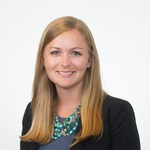Democrats Will Have Six Presidential Debates
The DNC announced a debate schedule starting in October.
The same day Republican candidates will share a stage for the first time, the Democratic National Committee announced that its first debate will be held on October 13.
Democratic candidates will debate a total of six times during the primary, beginning with the October debate in Nevada, hosted by CNN. The first four debates focus on the four traditional early states: Iowa, New Hampshire, South Carolina, and Nevada. After the October debate, the party has scheduled a November 14 debate in Des Moines (hosted by CBS/KCCI/The Des Moines Register), followed by one on December 19 in Manchester, New Hampshire (hosted by ABC and WMUR), and another on January 17 in Charleston, South Carolina (hosted by NBC and the Congressional Black Caucus Institute).
Dates for the fifth and sixth debates—one in Miami, hosted by Univision and The Washington Post, and one in Wisconsin, hosted by PBS—have not yet been set. They're currently slated for sometime in February or March, after the first nominating contests have been held. (The Iowa caucuses will be held on February 1.)
"These six debates will not only give caucusgoers and primary voters ample opportunity to hear from our candidates about their vision for our country's future, they will highlight the clear contrast between the values of the Democratic Party, which is focused on strengthening the middle class versus Republicans who want to pursue out-of-touch and out-of-date policies," DNC Chairwoman Debbie Wasserman Schultz said in a statement.
Unlike for the Republican field, thus far there have been few opportunities for the five announced Democratic candidates to share a stage: Their first joint appearance was on July 17 at the Iowa Democratic Party's "Hall of Fame" dinner in Cedar Rapids. They're slated for a similar event in Iowa on August 14, at the party's annual "Wing Ding Dinner" in Clear Lake.
The debate schedule hews to the original guidelines released by the DNC in May, which sanctioned six debates beginning "in the fall of 2015." But the fact that just four will occur before voting begins is already drawing criticism from the candidates who aren't named Hillary Clinton. The schedule is a boon to the former secretary of State, who is better known and will have more resources to get her message before voters ahead of the first contests. For the other candidates—Vermont Sen. Bernie Sanders, former Maryland Gov. Martin O'Malley, former Virginia Sen. Jim Webb and former Rhode Island Gov. Lincoln Chafee—who have comparatively smaller budgets, the chance to share a primetime debate stage with Clinton is a key part of raising their name identification.
It also includes a polling threshold: Candidates must reach at least 1 percent in three national polls in the six weeks prior to the debate, a potential challenge for the lesser-known candidates (like O'Malley, Webb, and Chafee) who have been hovering around that percentage in recent polls.
Within minutes of the debate schedule's release, O'Malley senior strategist Bill Hyers blasted it as a sign the national party is "rigging the process and cutting off debate."
"By inserting themselves into the debate process, the DNC has ironically made it less democratic," he said. "The schedule they have proposed does not give voters—nationally, and especially in early states—ample opportunity to hear from the Democratic candidates for president. If anything, it seems geared toward limiting debate and facilitating a coronation, not promoting a robust debate and primary process."
And later on Thursday, Sanders too expressed his desire to "significantly expand" the debate schedule. "I am disappointed, but not surprised, by the debate schedule announced by the Democratic National Committee," he said. "At a time when many Americans are demoralized about politics and have given up on the political process, I think it's imperative that we have as many debates as possible—certainly more than six."







